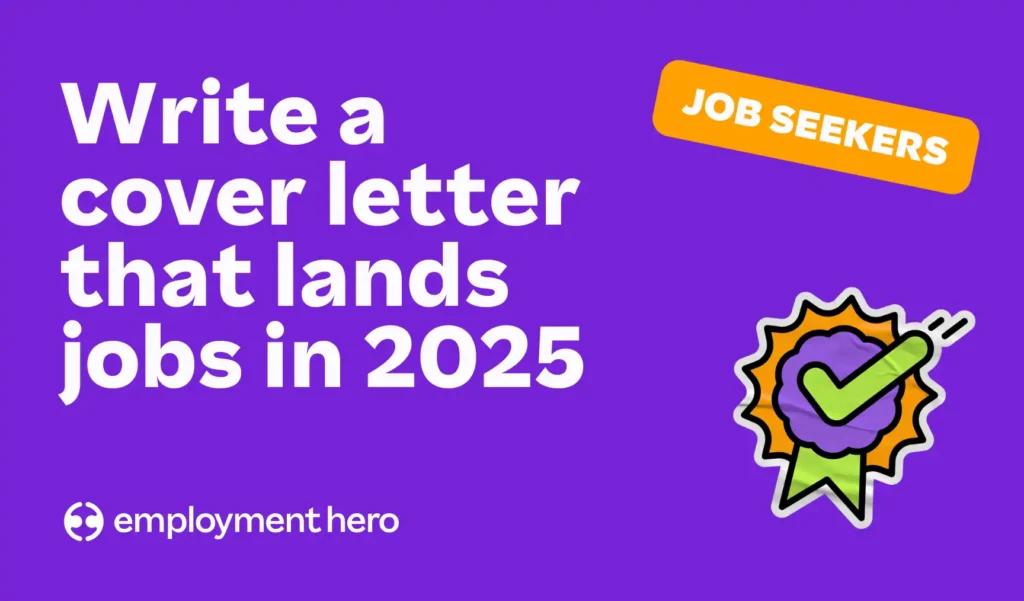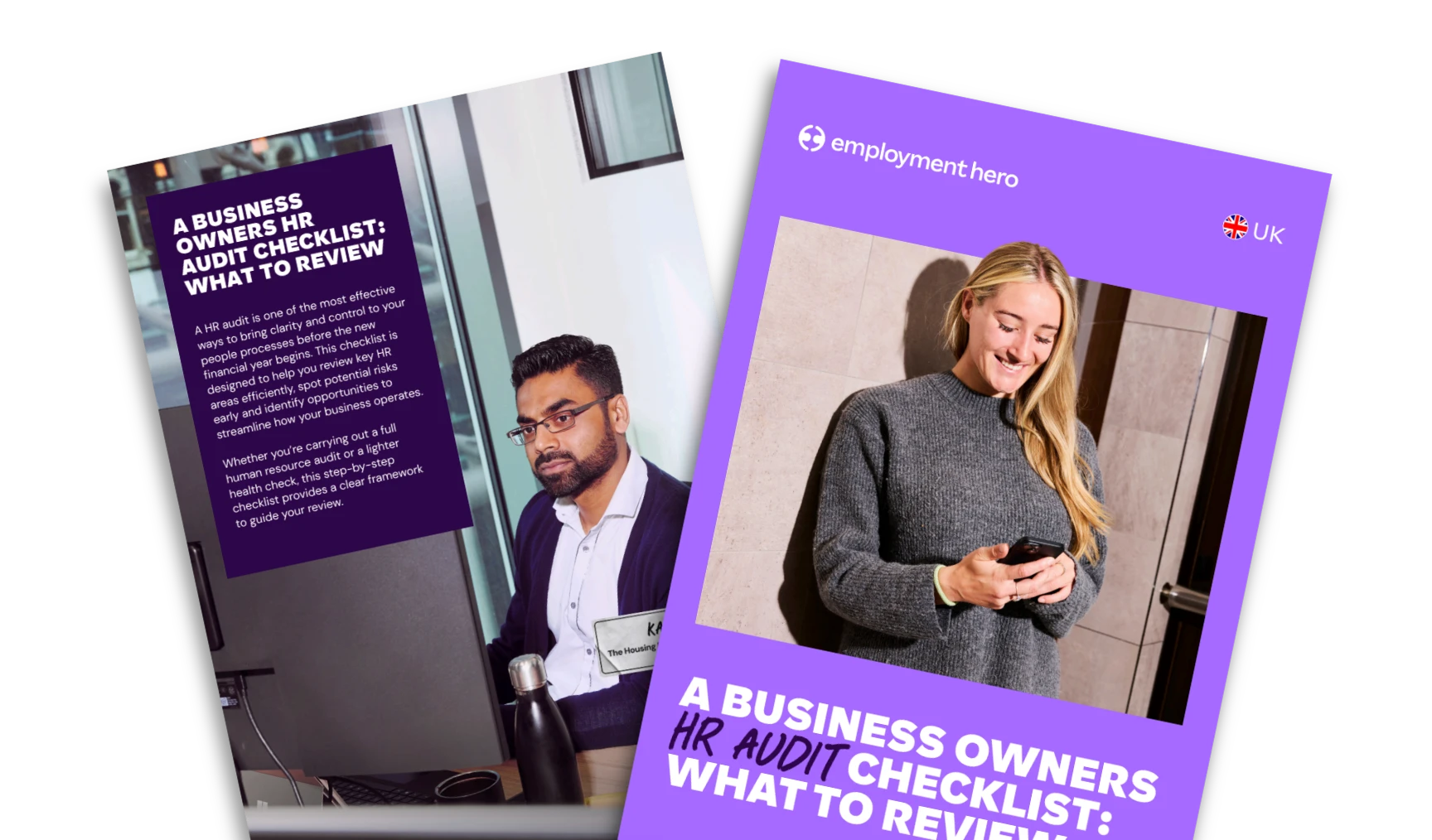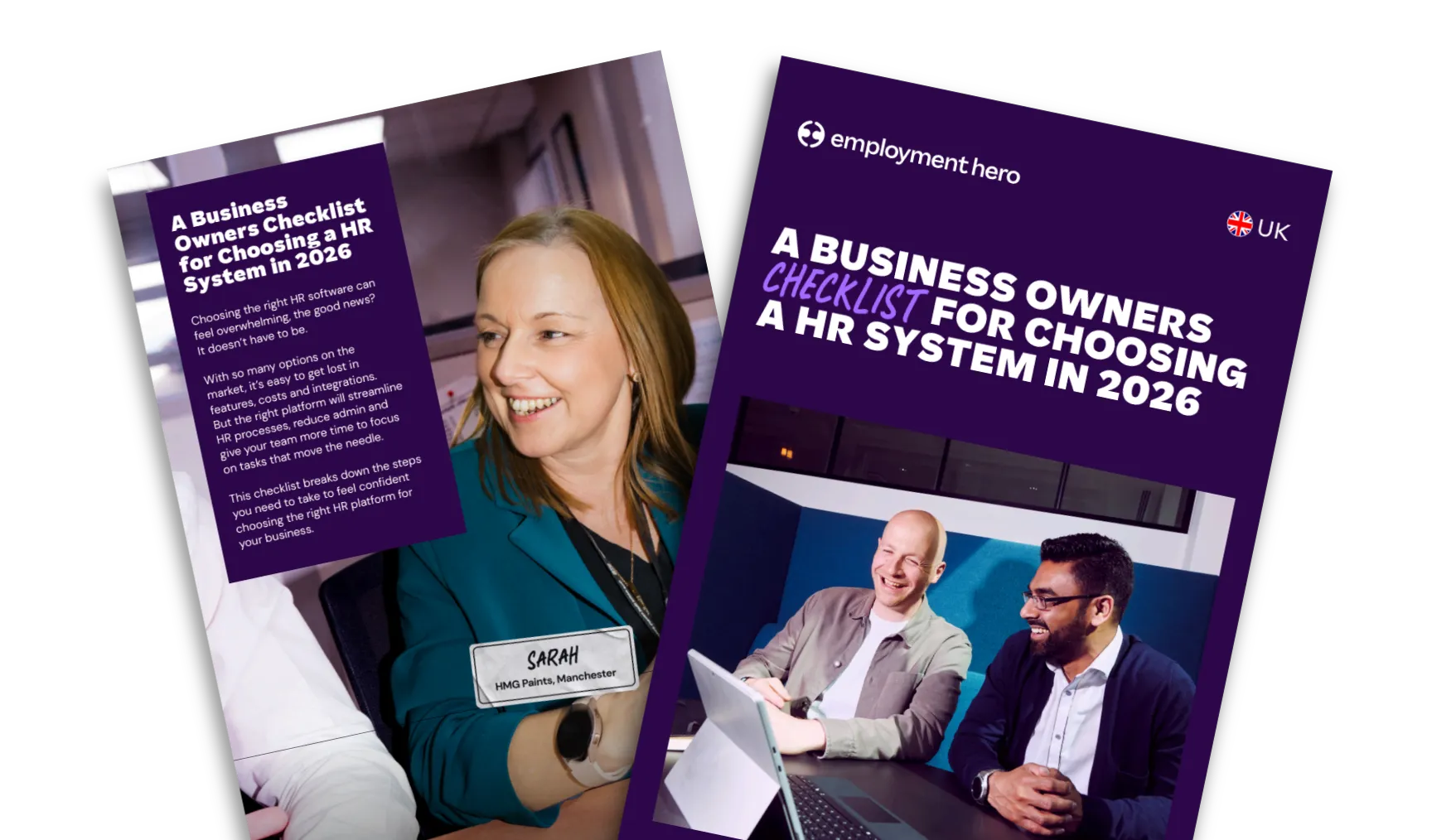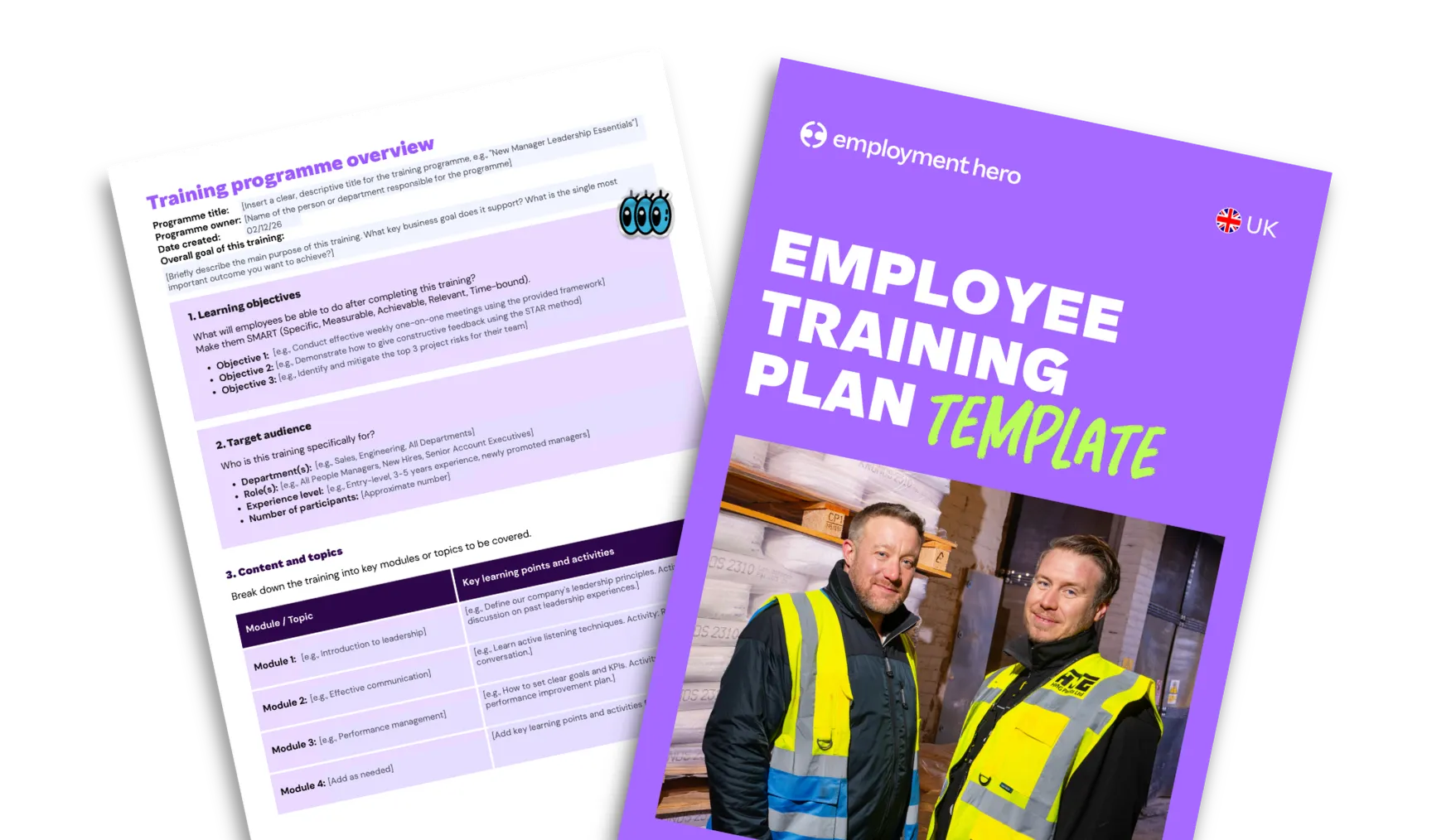How to Write a Cover Letter That Lands Jobs in the UK (2025 Guide)

Contents
A strong cover letter can make all the difference when applying for jobs in the UK. It not only complements your CV, but highlights why you are uniquely suited for the role. This guide provides actionable advice to help you craft a cover letter that stands out in the competitive UK job market.
Why Cover Letters Still Matter in 2025
While some employers may consider cover letters optional, they remain a powerful tool, especially in the uniquely competitive UK market. Here’s why they continue to hold significance through their evolving role:
- Personalisation: Recruiters value applicants who take the time to tailor their applications to both the company and the role.
- Storytelling: A cover letter allows you to connect your experiences and achievements to the company’s needs.
- Cultural fit: Hiring managers often look for clues about how well you align with their team’s culture.
What UK employers look for
In the UK, when you apply for a job, employers often look at your cover letter to understand a few key things. They want to see how well you can express yourself and if your writing is clear and easy to understand. They also want to know if you have a good grasp of the industry you’re trying to get into. This shows them you’ve done your homework and are genuinely interested. Finally, they use the cover letter to see if you can handle the specific tasks and challenges that the job might throw your way. It’s your chance to show them you’re a good fit for what they need.
Even though new technologies like AI and systems that automatically sort applications (called Applicant Tracking Systems or ATS) are becoming more common, writing a good cover letter is still really important. For many different kinds of jobs, taking the time to write a thoughtful and persuasive letter can make a big difference. It helps you stand out and shows your genuine interest and effort beyond just your resume.
How to Structure a Cover Letter That Works
A great cover letter follows a clear and logical structure. Here’s how to format yours:
1. Opening Section
The opening is your chance to grab attention. Here’s how:
- Address the recruiter personally (if you know their name). Use “Dear Hiring Manager” if not.
- State your intent clearly by referencing the specific role.
- Express enthusiasm for both the job and the company.
Example opening: Dear Hiring Manager, I am excited to apply for the [Position] role at [Company]. With [X years] of experience in [field/industry], I am eager to bring my skills in [key expertise] to your team.
2. Middle Section
The middle section is where you make your case and prove your value with examples:
- Highlight your skills and achievements with examples relevant to the role.
- Show alignment by referencing the company’s goals and values.
- Use metrics to quantify your impact when possible.
Example: While managing a team at [Company Name], I introduced a streamlined reporting process, cutting project timelines by 20%. This experience aligns directly with the need for efficient project management you outlined in the job description.
3. Closing Section
End with confidence and a clear call to action:
- Reiterate your interest in the role.
- Invite further communication.
- Avoid vague endings like “looking forward to hearing from you.”
Example closing: Thank you for considering my application. I look forward to the opportunity to discuss how my skills align with your team’s needs. Please feel free to contact me at [your phone number] or [your email].
Do’s and Don’ts of a Good Cover Letter
Avoiding common pitfalls can save your application from the “no” pile. Here’s what to keep in mind:
Do’s
- Tailor every letter to the job description.
Include action words like “achieved,” “collaborated,” or “led.” - Clearly link your experience to the role’s requirements.
- Proofread thoroughly to eliminate grammatical errors.
- Maintain a professional tone while showing enthusiasm.
Don’ts
- Never copy-paste generic content.
- Avoid repetition from your CV. Use the cover letter to add unique value.
- Don’t exceed one page—conciseness is key.
- Skip clichés like “I work well with people” unless backed with examples.
Tools and Templates to Make It Easier
You’re not on your own when it comes to creating a cover letter. You can simplify the creation process with these resources:
- Cover Letter Builders: Platforms like Canva or Google Docs offer easy-to-use templates designed for the UK job market.
- Spell Checkers and Proofing Tools: Use tools like Spellcheck in your Word documents or Grammarly to double and triple check your spelling and grammar.
- AI Cover Letter Generators: Tools like Employment Hero Jobs can help you to create a profile and tailored cover letters for your job applications.
Whichever tools you use, make sure you get a second set of (human) eyes over your cover letter. Time to call in that favour with a friend, mentor or your nan.
Final Checklists Before You Send
Review your cover letter with these simple steps:
- Checklist for Content:
- Does it address the recruiter directly?
- Is it tailored to the job description?
- Have you clearly explained your skills and achievements?
- Checklist for Formatting:
- Is it one page with a clear structure?
- Did you use a professional font like Arial or Calibri?
- Are your paragraphs succinct and easy to read?
- Checklist for Proofreading:
- Double-check names, dates, and role titles.
- Ensure there are no typos or grammatical mistakes.
- Ask a friend or mentor for feedback.
Take your career to the next level
Take the next step and check out Employment Hero Jobs, your shortcut to the best roles with great UK employers. Create an AI-powered profile and we’ll match you to great roles based on your relevant skills, strengths and interests. Get your profile in front of employers and uncover exclusive hidden opportunities you won’t find on any regular job board.
Frequently Asked Questions About Cover Letters
Yes, a good cover letter is very important. It really helps you stand out, especially for jobs where communication skills are key or where fitting in with the company culture matters. It lets you add more detail to your resume, explaining your experience and showing why you’re a good fit for the job and the company. Unlike a standard resume, a cover letter lets you show your personality and excitement. You can explain your true interest and how well you understand the company’s goals and beliefs. This personal touch can greatly improve your application, make a strong impression on hiring managers, and boost your chances of getting an interview.
AI tools can help you start writing your cover letter, but don’t just copy what they say. You need to carefully edit it to make sure it sounds like you and fits the job you want. Here’s why you need to check it yourself:
- Your Voice: AI might write correct sentences, but it often can’t capture your unique style and the right professional tone. You need to make it sound like you – enthusiastic and real, not like a robot.
- Personal Touch: A good cover letter is made just for the company and the job. AI might use general information, but it won’t know why you want to work for this company or how your skills fit their needs. You have to add details that show you’ve done your research and are truly interested.
- Correct Information: AI has a lot of information, but it can sometimes make mistakes or get things wrong. Always double-check any facts, company names, or job titles. Also, make sure all the details about your own experience and skills are completely accurate and match your resume.
Think of AI as a helpful tool that saves you time in the beginning, but it can’t replace your own judgment and personal touch. The final letter should always show off your skills, attention to detail, and real desire for the job.
Keep your cover letter to a single page, ideally with three to five short and clear paragraphs. This ensures it’s easy to read and gets straight to the point, making a good first impression.
To write a strong cover letter, make sure it’s specific to the job and company you’re applying for, showing how your skills and experience match what they need. Also, explain how you fit with their company culture and provide clear examples of your past achievements, using numbers to show your impact.
Your CV and cover letter are both important, but they do different things. Your CV lists all your qualifications, experience and education, like a factual summary of your work history. Your cover letter, though, lets you talk more about your best skills and achievements, showing how they relate to the job and why you really want to work for that company. A CV helps you get past the first checks, but a strong cover letter can show off your personality, how well you communicate and if you’d be a good fit, often deciding if you get an interview. So, a good job application usually needs both working together.
Not all UK job applications require a cover letter, but it’s always a good idea to submit one if given the option. Some employers, particularly in creative or communication-focused roles, view cover letters as an essential part of the application, while others may rely more heavily on your CV. Always check the application instructions carefully; if it’s optional, submitting a well-crafted letter can still significantly strengthen your application and demonstrate your genuine interest.
No, you shouldn’t use the exact same cover letter for multiple jobs. Each job and company is different, so your cover letter should be too. Take the time to change it for each application, highlighting the skills and experiences that are most important for that specific role and explaining why you want to work for that particular company. This shows employers you’re serious and have done your homework, which makes your application much stronger.
A cover letter stands out when it’s made just for the job and company you’re applying to. This means you need to show them you understand what they do and why you’re a perfect fit. Use clear examples of your past successes, especially ones that show how you can help the new company. Also, make sure it’s easy to read, well-written and doesn’t have any mistakes. A personal and enthusiastic tone also helps you leave a strong, positive impression.
Yes, absolutely! Even if a cover letter is optional, it’s a really good idea to write one. It gives you a chance to show more of your personality and explain why you’re truly excited about the job and the company. It helps you stand out from other applicants and shows that you’ve put in extra effort, which employers often appreciate.
How you send your cover letter depends on how the job application asks for it. If there’s an online form where you upload your CV, you’ll usually upload your cover letter there too, often as a separate document or sometimes by pasting it into a text box. If the application asks you to email your CV, then you should attach your cover letter to that email, or you can write your cover letter directly in the email’s body. Always follow the instructions in the job advertisement to make sure your application is sent correctly.
Related Resources
-
 Read more: EOFY HR Audit: What to Review in March
Read more: EOFY HR Audit: What to Review in MarchEOFY HR Audit: What to Review in March
Complete a EOFY HR audit with our practical checklist. Review compliance, people processes and compliance to reduce risk before the…
-
 Read more: How to Choose an HR System: A 2026 Buyer’s Checklist
Read more: How to Choose an HR System: A 2026 Buyer’s ChecklistHow to Choose an HR System: A 2026 Buyer’s Checklist
HR software is more than features. Discover how the right system can streamline operations, boost efficiency and future-proof workforce management.
-
 Read more: How to Create an Employee Training Plan: Template & Guide
Read more: How to Create an Employee Training Plan: Template & GuideHow to Create an Employee Training Plan: Template & Guide
Ready to build a training program that drives results? Learn how to create an effective employee training outline that aligns…



















